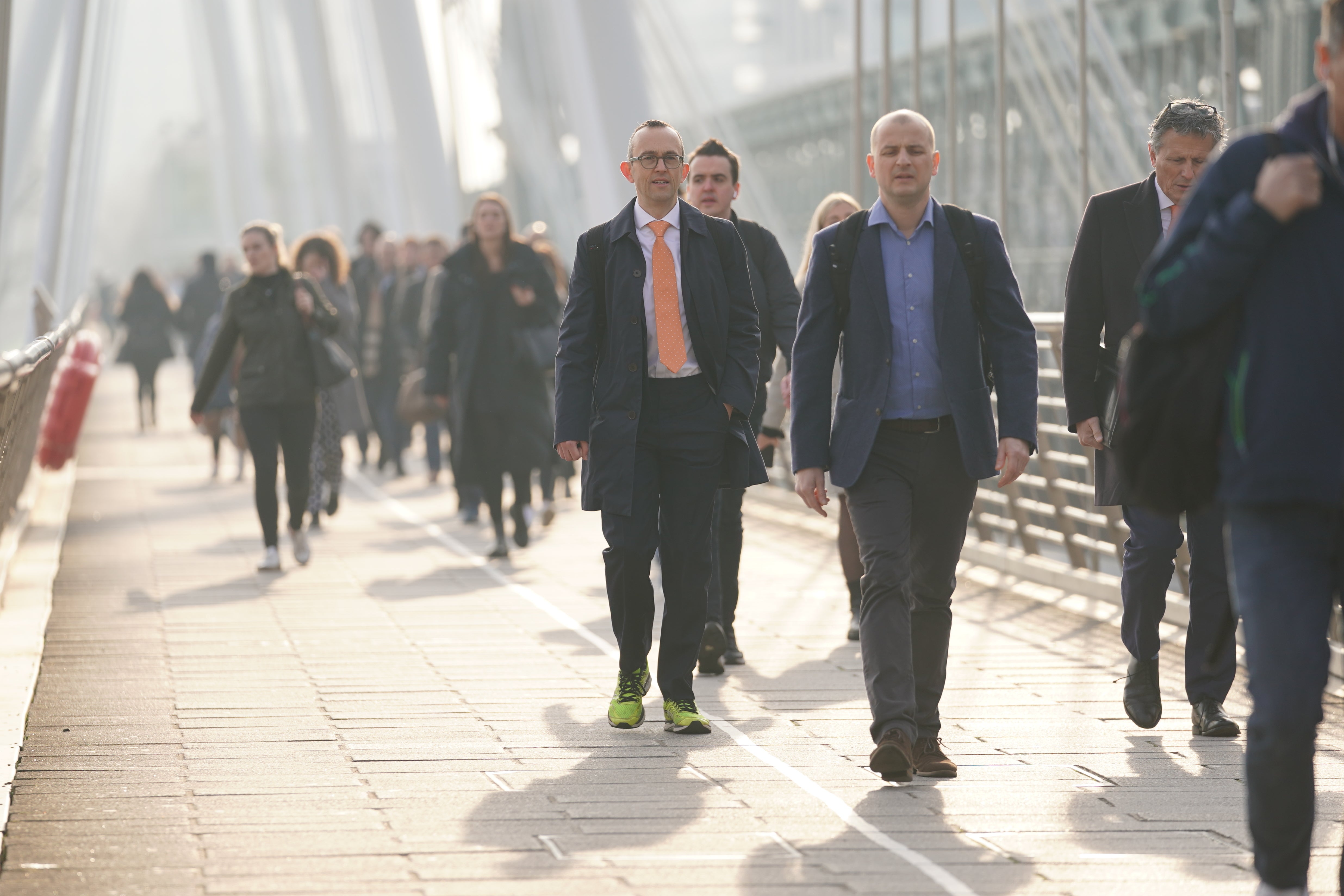Economic growth ‘slowed to a crawl’ as demand weakened
The latest S&P Global/CIPS flash UK composite purchasing managers index (PMI) reading showed a 17-month low in private sector activity.

Your support helps us to tell the story
From reproductive rights to climate change to Big Tech, The Independent is on the ground when the story is developing. Whether it's investigating the financials of Elon Musk's pro-Trump PAC or producing our latest documentary, 'The A Word', which shines a light on the American women fighting for reproductive rights, we know how important it is to parse out the facts from the messaging.
At such a critical moment in US history, we need reporters on the ground. Your donation allows us to keep sending journalists to speak to both sides of the story.
The Independent is trusted by Americans across the entire political spectrum. And unlike many other quality news outlets, we choose not to lock Americans out of our reporting and analysis with paywalls. We believe quality journalism should be available to everyone, paid for by those who can afford it.
Your support makes all the difference.UK private sector growth “slowed to a crawl” in July as weaker customer demand and staff shortages weighed on industry, according to new figures.
The closely followed S&P Global/CIPS flash UK composite purchasing managers index (PMI) report showed a reading of 52.8 for July, dropping from a 53.7 reading for June.
The reading represented a new 17-month low.
Nevertheless, it was slightly above the predictions over a consensus of economists who had forecast 52.5 for the month.
The survey of UK business showed a slowdown in output growth driven by “softer demand”.
As a result, the manufacturing sector saw activity decline for the first month since May 2020 as goods producers blamed a lack of new work to replace completed orders.
Chris Williamson, chief business economist at S&P Global Market Intelligence, said: “UK economic growth slowed to a crawl in July, registering the slowest expansion since the lockdowns of early-2021.
“Although not yet in decline, with pent-up demand for vehicles and consumer-oriented services such as travel and tourism helping to sustain growth in July, the PMI is now at a level consistent with just 0.2% GDP growth.
“Forward-looking indicators suggest worse is to come.
“Manufacturing order books are now deteriorating for the first time in one-and-a-half years as inflows of new work are insufficient to keep workforces busy, which is usually a precursor to output and jobs being cut in coming months.”
Private sector firms left little to get excited about in July with the softest rise in activity since February 2021 but there was a scrap of improvement in some areas that offered light relief
The new report also highlighted that slowing overall activity in July was partly caused by “ongoing capacity constraints arising from shortages of materials and staff”.
Nevertheless, the services sector continued to outperform other areas of industry, although its own growth slowed slightly.
Firms revealed that cost inflation eased for the second consecutive month to bring monthly cost rises to a 10-month low, with the easing particularly notable among manufacturing firms.
As a result, there was also a slowdown in increases to the prices charged by companies to their customers.
Duncan Brock, group director at CIPS (Chartered Institute of Procurement & Supply), said: “Private sector firms left little to get excited about in July with the softest rise in activity since February 2021 but there was a scrap of improvement in some areas that offered light relief.
“The rise in input costs was the lowest since September 2021 with a slight stabilisation in fuel costs and some commodity prices had started to drop.”